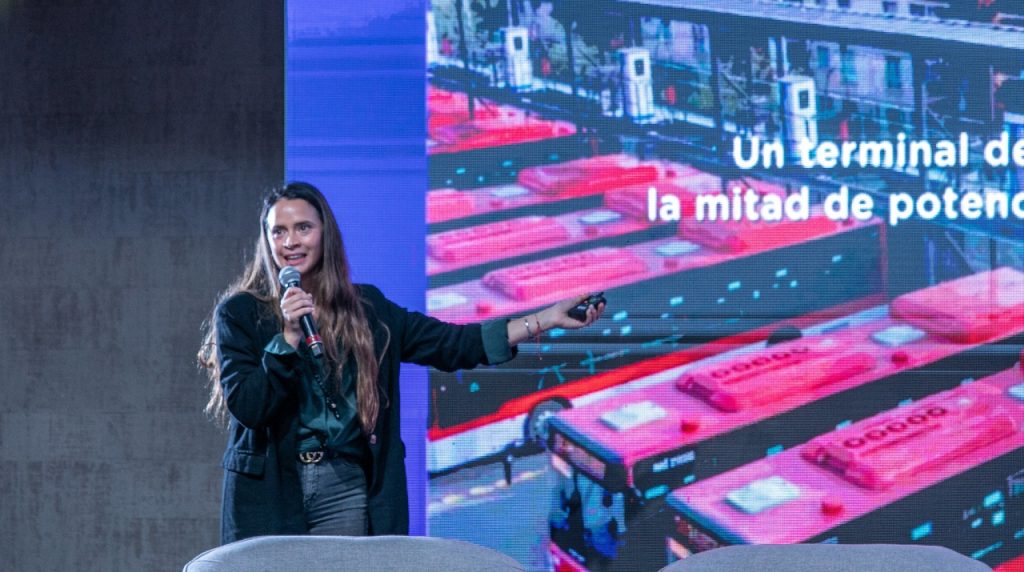At the Latam Mobility & Net Zero: Southern Cone 2024, Andrea Castro Mozó, General Manager of COPEC Voltex, presented her company’s vision for the transformation towards electromobility in Chile and Latin America.
COPEC Voltex is dedicated to developing electromobility solutions, demonstrating a commitment to sustainability and the energy transition towards cleaner sources. During her speech, Castro Mozó highlighted three strategic lines that have guided their work since the beginning, all aligned with the central purpose of the company: decentralizing, democratizing, and expanding access to electromobility.
Decentralization and Expansion of the Fast Charging Network
The first line of work, and perhaps the most visible, has been the expansion of the fast-charging network for electric vehicles. From the outset, COPEC Voltex took on the challenge of creating an infrastructure that allows electric vehicle users to travel across the country, regardless of the availability of such vehicles in each region.
“This has materialized in the most extensive fast-charging network in South America, with over 1,800 kilometers connected and more than 120 fast-charging points distributed across all regions of Chile,” she stated.

On the other hand, Castro Mozó mentioned the installation of charging stations in remote areas like Coyhaique, where the company anticipated demand, following a historical tradition of COPEC to reach the most needed places first.
Democratization of Access to Electromobility
The second line of action focuses on democratizing access to electromobility, aiming to enable more people to enjoy its benefits. An example is the agreement reached with the Regional Government of the Metropolitan Region, which allowed the installation of public chargers in more than 80% of the municipalities in this region.
“The electric taxi program, an initiative in collaboration with the Ministry of Energy and the Energy Sustainability Agency, has allowed taxi drivers to switch from combustion vehicles to electric ones, accompanied by the installation of free residential chargers,” Castro Mozó noted.
Electrification of Public Transportation
Finally, Andrea Castro Mozó spoke about the importance of the electrification of public transportation as an essential means to reach a greater number of people and maximize environmental benefits.

“Chile, and particularly the Metropolitan Region, is a global reference in this field, with over 2,500 electric buses in operation, representing more than 35% of the public transport fleet in the region,” she emphasized.
This effort is part of a broader process that, according to Castro Mozó, could lead to more than 50% of the fleet being electric by 2025, and 100% by 2030.
Thus, the electrification of public transport improves user experience and reduces pollutant gas emissions under the commitment of COPEC Voltex to sustainability and mobility.




